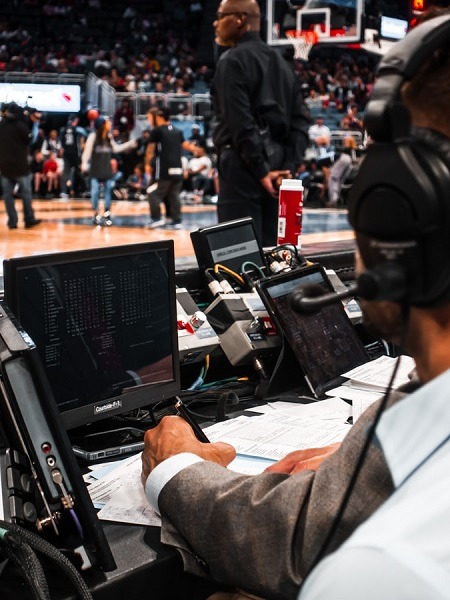Sports analysts are the people behind the stats that drive listeners to tune into radio and television stations on game day. Broadcasters throw them in during the play-by-play along with color commentary. They are also the ones you listen to during pre and post-games to have information broken down in a way you understand. If you feel you eat, breathe, and live sports, this career path may be for you. However, it does take experience, hard work, and dedication to become successful.
Getting Educated
The first step to becoming a sports analyst is being educated in sports. While in school, consider joining sports teams or volunteering for positions on the sidelines. The goal is to absorb as much information as you can, as you will be expected to be an encyclopedia of knowledge. While many specialize in one or two sports, the best analysts will understand everything they can. This includes contact sports, baseball, basketball, motorsports, and everything in between.
As you age, start taking classes that specialize in data analysis and communication. You will need to know the rules and regulations of all the games, but knowing how to distribute the information is most important. Colleges offer journalism, broadcasting, data analysis, and communication as degree paths. If college is not an option for you, consider taking online programs to receive certifications and training. Future employers put a lot of weight on people who hold degrees and have experience.
Gain Experience
That brings us to the next step of becoming a sports analyst, experience. Playing a sport is the best way to understand everything there is about it. However, not all analysts are athletes. Look for jobs that will put you in touch with the players, coaches, medical staff, and recruiters. Your goal is to have a complete grasp of everything involved in the industry.
Journalism is another route to gaining experience. You will be allowed to network and interview many people in the sporting industry. Writing down your thoughts hones your communication skills. Analysts are relied on by print and online editorials. Reporting requires people to trust you and your work. The more experience you have, the better you will become.
Networking
Another vital step to becoming a successful sports analyst is your ability to network. Attending events or being involved will connect you with coaches, players, staff, and others in the sportscasting industry. However, it is also wise to network with other journalists and ask for advice. People love to share their passions. When you talk to people already in the field, come prepared with ideas and your resume. You will need to work your way up, but that requires a support network. Consider communicating with people who work for sites like 먹튀검증 먹튀폴리스 to exchange ideas.
Professionalism
The final aspect of being a successful sports analyst is professionalism. You will be in front of cameras, on radio stations, and among large groups of people. Your information should always be credible and backed up with your research. In the beginning, you will likely be in an office setting. Computer data grinding is a large part of the business and knowing where to find dependable sources ensures success as you grow. However, this does not mean that you should not practice sitting in front of a camera and using teleprompters. The hard work required in the beginning shows your future employers that you can meet hard deadlines and handle obstacles in a professional manner.

